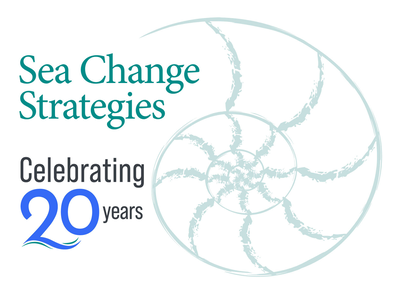You don’t listen
Really you don’t, at least not all the time. Me neither. In fact I am a cautionary tale.
Back in the 90s when I was hired as Communications VP of a large conservation group I arrived with zero management or leadership training (same as all of my senior colleagues). I’m embarrassed today by all the things I got wrong as a boss. The bad habit that causes me the most remorse was my appalling listening skills.
A typical meeting with a staff member involved me behind my desk dividing my time between looking at the email on my computer and the person sitting across from me. When I think about the message that sent to my team, I cringe.
Today it’s even easier to pay faux attention to others, thanks to the dominance of virtual meetings. It’s so easy to sneak a glance at Slack or email or finish up your Instacart order while pretending to be present. I am both guilty of that and think it’s only sometimes a bad thing, meetings being what they are. The trick is to know when that’s not ok. Here are three situations where it is really not ok and when you need to devote your full presence to the exchange:
…When you are meeting one on one with someone. As an executive coach, when I hear the tell-tale sound of the other person’s incoming Slack , that prompts a loving but firm conversation. For my part I turn off or disable all notifications because let’s face it, the pavlovian response to a notification is powerful. Thanks, Zuckerberg.
…When you are giving or receiving feedback. Feedback can be emotionally fraught for the giver and the receiver. Communication is happening on many levels, not just words. There’s facial expressions, body language, pregnant sighs, plus the in-your-head din of your own stories and anxieties either as the feedbacker or the feedbackee.
…When you are talking to a donor (and you didn’t think this was a fundraising blog). We spend countless hours conjuring up language and messages aimed at inducing the donors to donate, and to do it again and again. We hire experts on ‘framing’ (don’t get me started). We hire PR firms. We spend megabucks on a new logo.
How much time do you really spend learning how to really listen to what donors are telling you? Alia and I have worked with dozens of organizations and our experience is that most fundraisers receive little to no training in how to listen. And here we are not talking about listening to win an argument or listening to find the right moment for a pitch. We’re talking listening to see and understand the person across the table or on our computer screen.
It’s good fundraising. When people feel seen and heard and understood they feel more connected. When they feel more connected they are probably more likely to be good donors. Of course this is NOT to say every donor wants to be your friend or wants to have a deep soul-baring conversation. But the more deeply you see them, the more likely you are to understand what they need. And that is just good fundraising.
Final advice: this all goes way beyond a literal understanding of words being spoken. During my misguided foray into learning screenwriting, one of the things the experts stress is that when you are writing good dialogue, make sure you are writing as much for subtext, what is not being said, as you are for literal situation. In life people often don’t say what they mean with words, but often reveal what they are saying with body language and other nonverbal cues.
Listening is an art that takes practice. And you will be richer for the effort.
